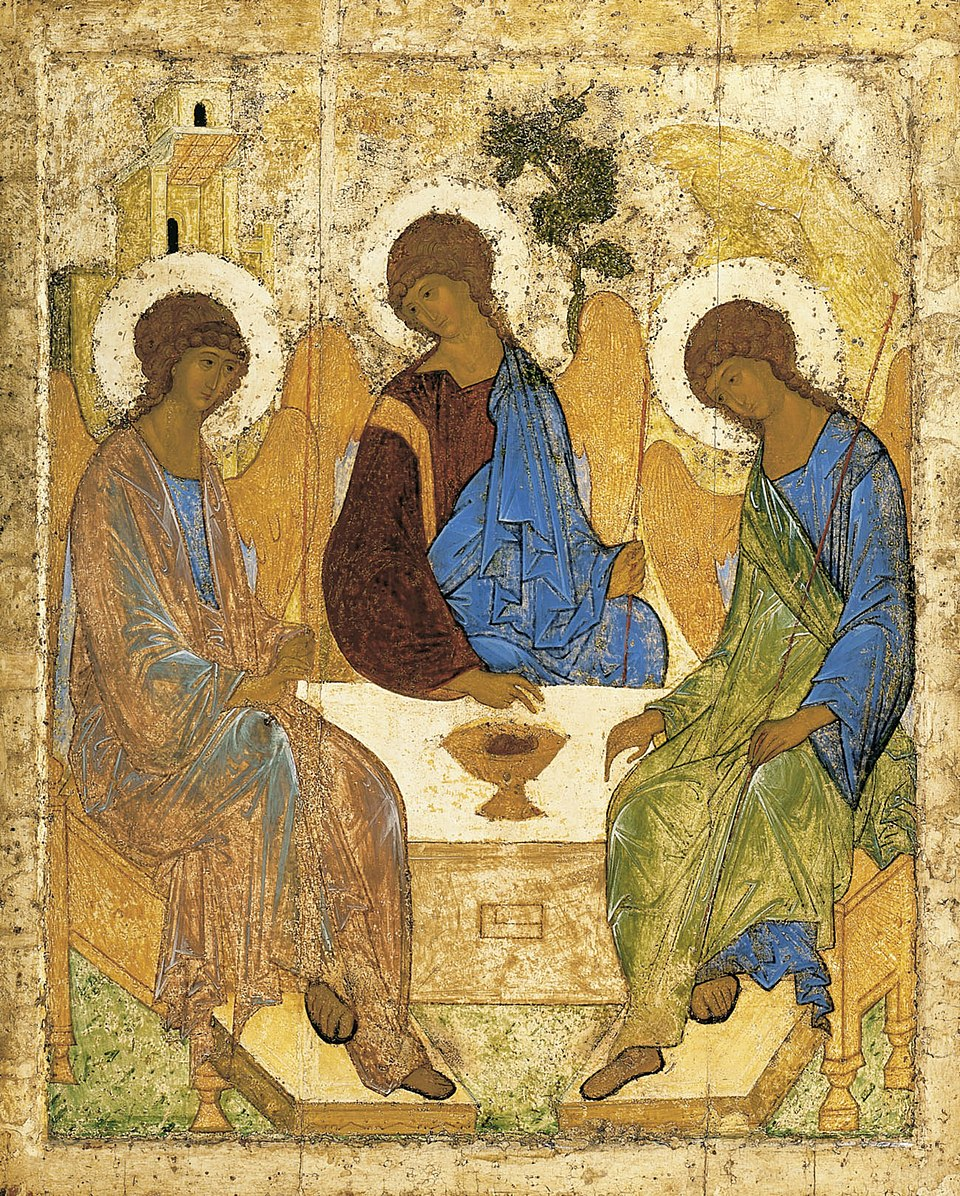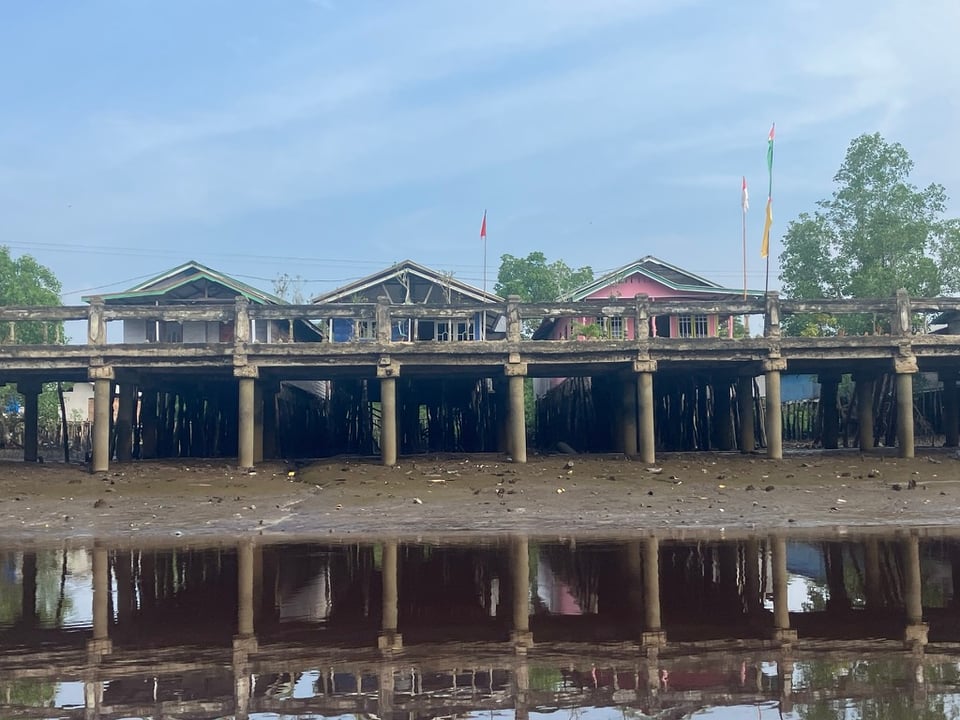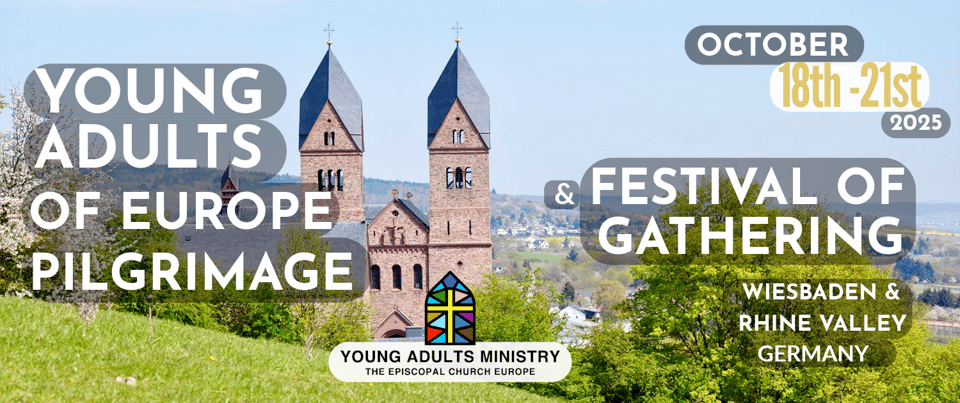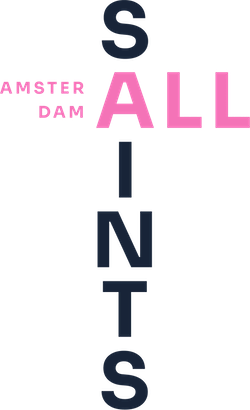All Saints Gazette: What Hospitality Changes
Greetings from All Saints!
Coming very soon:
31 August, 12:30: Kerkasiel Eucharist in Kampen
7 September, 17:30: Eucharist and meal at Vrijburg
Morning and Evening Prayer resume next week on Zoom

There is a power to both giving and receiving hospitality. Hebrews 13:2 says, “Do not neglect to show hospitality to strangers, for thereby some have entertained angels unawares.” As if the prospect of taking in angels weren’t motivating enough, the Rule of Saint Benedict says this in its 53rd chapter: “All guests who present themselves are to be welcomed as Christ, for he himself will say: ‘I was a stranger and you welcomed me.” Benedict is quoting Matthew 25:35.
The trip I just made with my family to Indonesia and Malaysia was mostly the fruit of years of work on Verena’s part. The most memorable part was when we went to the village of Mandah in Riau Province on Sumatra, where a team from an Indonesian university was cataloguing and digitizing the manuscript collection of a late Islamic teacher. Manuscript research in Indonesia and many other countries carries the baggage of colonialism. Many manuscripts in western collections were stolen, or given or sold in circumstances of grossly asymmetrical power, and the western scholars often did not value them for the reasons that Indonesians and others did. The people of Mandah and other places like it had every reason to be skeptical.
But a really awesome group of scholars with a grant from the British Library had done hard work explaining their project and getting people excited. It was exciting because the manuscripts that people have are by and large not things that were of interest to the colonial scholars. They’re interesting because they show what real people thought was worth keeping. A scholar’s notes on Islamic astronomy were on top of his daughter’s school reports and a stack of receipts.
The team asked Verena to join several Indonesian scholars in giving a presentation to the community, which was well-received of course. But what stood out to me was how enthusiastically they received our family. Verena had told them when she agreed to come that we would need help with our kids, and they said no problem.
Getting to Mandah involved a trip by minibus through the night from the nearest airport, and then riding a boat for two hours on the Indragiri River, with about 20 minutes on the open South China Sea. “We’re Malay,” a local official told me. “There is no road to our village, but we are connected to the whole world by river and sea. My ancestors’ blood is in this river.” One family provided meals for the visitors, another housed us in their spare room, and the whole town played soccer with Peter and Rasmus. I was a bit nervous about this part of the trip at first, but it ended up being a highlight of the summer.

What hospitality means, and what demands it places on guests and hosts, are not universal givens. In fact, there is always an element of negotiation. They were puzzled that we were vegetarians, but graciously found things to cook for us. For our part, we would not normally have been comfortable with the amount of photographs people wanted to take, but it seemed like the least we could do.
We should remember that we are not carrying this out in a vacuum, but in a world of power imbalances. It was not entirely fair that our presence was received with such enthusiasm. There was nothing special about us except for the fact that we were white Europeans (and one American). The historical reasons that Leiden University and the British Library have the resources they do are not praiseworthy. And though our food and lodging were paid for and Verena contributed her expertise, there is no way we can claim that the exchange was symmetrical. We got more than we gave. The bigger powers at play that structure our lives are not susceptible to rapid change. The most we can hope for is to knock a few bricks loose.
Really, all we could do was ask what they would like from us. Many seemed to appreciate the project and the knowledge it provided about their own history, which had never been of interest to colonial scholarship before. And the woman at whose house we stayed said she appreciated that we were there, and that we ate their food and slept on her mat. She said that the last time a white person had come to Mandah was 20 years ago, and he just saw what he wanted to see and moved on without staying the night. It did mean something to them that representatives of a Dutch institution that historically just took what it thought was of value (and hadn’t found much to take there) came back and asked what they wanted to show us about themselves, ate what was set before us, played soccer, and posed for approximately ten thousand pictures. By no means an end, but something.
The icon that begins this email is probably a bit overused, but it’s a classic for a reason. It is Andre Rublev’s take on the story in Genesis where three visitors come to Abraham and Sarah and receive their hospitality. At some point, it becomes clear that this visit is a theophany (an appearance of God). Though it is not always clear who is who, many of our ancestors took it as an appearance of the Persons of the Trinity.
Host or guest in a particular situation, none of us is ever anything other than a welcome guest in God’s creation. Because we are all created as manifestations of the Wisdom of God who is Christ, everyone who receives is a visitor receives Christ. And whoever comes as a visitor visits Christ and offers Christ. Abraham and Sarah’s hospitality to the God whose guests they were changed their lives and the world in which they lived. It was the occasion for God’s announcement of the child they would soon have, and also of God’s judgment and impending overthrow of a city-state that repaid the gift of strangers’ presence with violence.
How we will receive and offer God’s hospitality? And can we help the countries where we are from and where we live not be like Sodom?
We have ANBI status!
Thanks to the hard work of Hans and the Bishop’s Committee, we have now been granted ANBI status, meaning that gifts to All Saints can be deducted from taxable income in the Netherlands. A letter explaining how this works in further detail will be forthcoming. The very short version is that when you make your Dutch tax return, you can include your donations to All Saints (from 1 January 2025) under “gifts to ANBI organizations” with our RSIN number, which is 866257366. We can provide you with an annual statement if you contact the treasurer. Hans or the clergy are happy to provide whatever additional information we can, though nothing we say should be considered tax advice.
Kerkasiel Service on 31 August in Kampen!
Speaking of helping our countries fulfill Christ’s law of hospitality, we will hold a service in Kampen again on 31 August as part of the Protestant church’s kerkasiel action. Our service begins at 12:30. Let Kyle know if you’re going and have a car in which you could take a few people, and we will see if there is any chance of organizing rides together. We will also need a couple readers, an intercessor, and some food to share as part of our service (otherwise you have to listen to me reading random Bible passages aloud to fill up the time).
Young Adult Pilgrimage
Here is an invitation from the Convocation’s Young Adults Ministry. I do not know much about the program, but I can emphatically recommend any occasion for a trip through the Rhine Valley!

Dear Convocation Churches of Europe,
We would love to share with you this invitation that is for all the young adults of the Episcopal Church in Europe. This is an invitation for the upcoming Festival of Gathering of the Convocation, which will be followed by a Young Adults Pilgrimage in Germany.
Dates
October 18th - Friday (Wiesbaden)
October 19th - Saturday (Wiesbaden)
October 20th - Sunday (Rüdesheim)
October 21st - Monday (Rüdesheim)
-Return Tuesday, October 22nd (morning towards Frankfurt Train Station)
If you any of your young adult parishioners are interested in joining, please invite them to fill out the form : https://forms.cloud.microsoft/r/tWm7DzVPGS
Any questions or more information please write us :
Antonio’s email: jamerino@episcopaleurope.org
Heidrun’s email: halfke@episcopaleurope.org
First Regular Service: 7 September
I don’t know about you, but for me, it’s been too long. Our regular twice-monthly Eucharist will resume on 7 September in Vrijburg at 17:30. You know the routine: come and, if you can, bring some food to share afterward.
ANBI Status is here! (And Jesus is coming soon)
Use the QR code or this link, or make a transfer through your banking app (the latter saves us a few cents). Please consider making your offering recurring, and pray about what you are called to pledge when we have our winter pledge drive.
Bank details
All Saints Amsterdam
IBAN NL32 TRIO 0320 8657 62
BIC TRIONL2U

That’s all for Today! Want to talk to a priest? We want to talk to you too!
Website: https://allsaintsamsterdam.church
Mpho: mpho@allsaintsamsterdam.church
Kyle: kyle@allsaintsamsterdam.church
General: info@allsaintsamsterdam.church
Instagram: @allsaintsamsterdam.church
